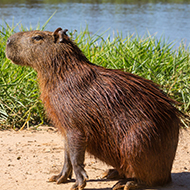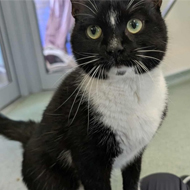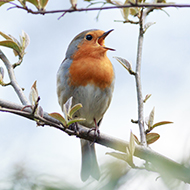Cane toads were first introduced to Australia in the 1930s to control destructive beetles in sugarcane crops.
Strategy could have major impact on Australia's wildlife
A group of researchers have found a novel way to lessen the impact that Australia's toxic cane toads are having on the environment.
Through introducing smaller, less deadly cane toads, the scientists have trained goanna lizards not to eat the poisonous amphibians.
Published in the journal Biology Letters, it is hoped that the study will help to protect the continent's rare and vulnerable wildlife.
Cane toads were first introduced to Australia in the 1930s to control destructive beetles in sugarcane crops. However, they are also capable of poisoning predators that try to eat them and their spread has been unstoppable in recent years.
The hardest hit predator is the yellow-spotted floodplain goanna, whose population is estimated to have fallen by as much as 90 per cent.
In the study, the scientists presented small cane toad to the lizards via a telescopic fishing pole. The toads made the lizards sick, but they were not toxic enough to do any long-term harm.
Radio transmitters were then attached to the lizards to see whether they would eat the toads again.
Of the 16 lizards who had tasted the toad, the majority did not eat the toad again - and over 50 per cent survived during the 18 month trial.
The researchers say that the study is evidence that goannas have the ability to learn from their experiences and retain their knowledge.
Speaking to BBC News, lead researcher Dr Georgia Ward-Fear from the University of Sydney, said: "We've been very surprised by the results, by the amount of time that some of these lizards have actually retained this knowledge and survived in the presence of a high-density of cane toads, which is basically unheard of in the wild."
She added: "This study provides the proof of principle that this strategy could be very effective. Employing it in the wild could potentially have a really large positive impact on the goanna population."
Image (C) Bill Waller/Wikimedia Commons







 Zoetis has launched a new survey to identify management techniques for Equine Herpes Virus (EHV).
Zoetis has launched a new survey to identify management techniques for Equine Herpes Virus (EHV).
